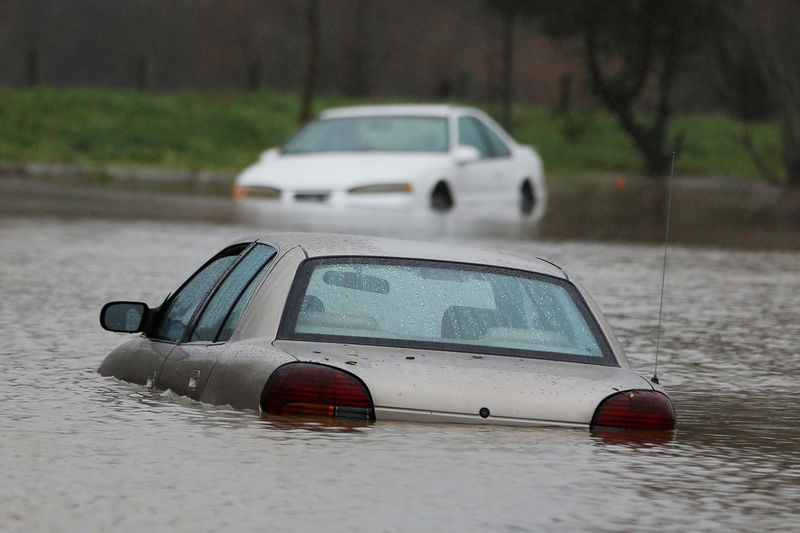By P.J. Huffstutter
CHICAGO (Reuters) – All barge traffic will be halted across a wide swath of the Upper Mississippi River for weeks, the U.S. Department of Agriculture said Thursday, as record winter snowfall in the upper Midwest is now melting and flooding into waterways.
The closures will force grain and fertilizer shippers to find alternative, potentially more costly, transportation by truck or rail, freight experts said.
Such floods have become part of a volatile cycle for the U.S. waterway, a major transportation artery moving some 60% of American grain exports from the heartland to the global market via the Gulf Coast.
Just last fall, drought plagued the lower and middle Mississippi River valley, sending river levels plunging to historic lows, halting barge shipments.
Now, all locks and dams above Lock 17 – near New Boston, Illinois – will be closed for the next three weeks, and no freight is being accepted along the Twin Cities and mid-Mississippi portions of the river, USDA said in a weekly transportation report.
Such closures are pushing down barge freight rates. [BG/US]
Though it is not a busy export period for the United States, the closures will affect the delivery of any remaining soybeans or grain for the export market, said Mike Steenhoek, executive director of the Soy Transportation Coalition.
It’s also creating a logistical headache for fertilizer suppliers and buyers, who typically rely on northern-bound barges to haul their goods to the Midwest ahead of spring planting.
“It’s those shipments that are concerning, and will have to be diverted off the river and moved north on rail or by truck,” Steenhoek said.
As the river levels rise, the trouble is spreading: As far south as Lock 22 – near Saverton, Missouri – high water could force the locks and dams to be shuttered and stay closed until mid-May, USDA said.
Read the full article here





